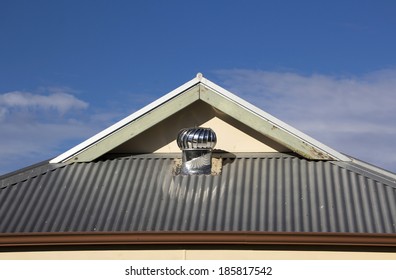Clear away any debris or insulation blocking the vents to re activate the spinning turbine.
Turbine roof vent not spinning.
A turbine vent is a passive ventilation device.
As soon as it starts to spin it vacuums air out of your attic.
Climb up into your attic and look at the vents from the inside.
Flat roof vents have no moving parts to break or squeak but don t vent as much air as wind driven vents.
You can usually adjust the level by turning the turbine body.
This is a bad thing because it blocks the air flow.
It was very annoying.
The popular ridge and soffit ventilation systems and the traditional metal pot vents are also passive ventilation systems.
Since they are only 4 years old i m guessing they were replacements so maybe the wrong ones were installed not all turbines work with all roof pitches or these just haven t been leveled correctly.
Wind driven roof vents will pull more air from the attic but only when the wind is blowing.
Climb the ladder remove the access panel and enter the attic.
Inspect your turbine vent and make sure the top spinning portion is securely anchored to the standpipe using sheet metal screws.
Be sure to lubricate the bearings.
Find roof turbine vents at lowe s today.
A turbine vents spins with the slightest breeze.
They sell foam channels you can staple to the underside of the room to allow for airflow while still allowing insulation to be installed.
If the flashing is loose against the roof secure it with.
Game of life shall not be held liable for any improper or incorrect use.
Our turbine roof vents whirlybirds were really noisy and had some rattling that was causing some vibration in the house.
If the vents are blocked by insulation boxes or other obstructions heat will not be able to escape through them and they will not spin.
All things being equal wind driven turbine vents also known as a whirlybird roof vent do move more air than flat vents but only when the wind blows.
Disclaimer of liability this channel produces videos for entertainment purposes only.
It s not uncommon for insulation to have been jammed tight out to the edge of the roof.
Place the stepladder under the attic access space.

